Fleurs du Mal Magazine


Or see the index
∗The photo book Streetdreamers from David van Reen (1969-2015) is published posthumously as a tribute to ‘his family’: the streetdreamers in Ethiopia.

David was a sportsman. Working as a trainer in Kenya and Ethiopia, he encountered the people living on the streets on a daily basis: the elderly, children, the disabled, the blind and many more. He decided to do something about it.
With the help of his parents and friends, he founded the Lalibela Foundation in the town of Lalibela, known for its rock-hewn churches. At the same time, he began processing what he saw and experienced by writing, photographing and painting. Several of his books were published between 2008 and 2015, starting with his impressive book of photographs Het land van de verbrande gezichten (The Land of the Burned Faces) and two novels about life in Africa, which he had come to know well.
 In the novel Engelen der wrake (The Avenging Angel), David confronts the reader with the tragic living conditions of people in the Kenyan slums, a harsh, ruthless world plagued by vicious gangs, where residents draw hope from friendship and the trust they have in each other. Anbessa’s dochter (Anbessa’s Daughter), a vivid narrative about people on the lowest rung of society in Ethiopia, is based on the everyday realities of the main characters, who despite everything try to make something beautiful out of their lives.
In the novel Engelen der wrake (The Avenging Angel), David confronts the reader with the tragic living conditions of people in the Kenyan slums, a harsh, ruthless world plagued by vicious gangs, where residents draw hope from friendship and the trust they have in each other. Anbessa’s dochter (Anbessa’s Daughter), a vivid narrative about people on the lowest rung of society in Ethiopia, is based on the everyday realities of the main characters, who despite everything try to make something beautiful out of their lives.
The portraits and landscapes in Het land van de verbrande gezichten reflect his vision of the people of Ethiopia, their culture, their life within family clans, and their religion. In Streetdreamers, he portrays life on the streets: there are many thousands of homeless people in capital city, Addis Ababa.
Streetdreamers
by David van Reen
Publisher: VanSpijk ArtBooks
First edition 2024
Language: English
Hardcover
192 pages
ISBN-10 :9062169651
ISBN-13 :978-9062169658
24.7 x 2.3 x 29.5 cm
€29,50
•fleursdumal.nl magazine
More in: - Book Lovers, - Book News, - Book Stories, - Bookstores, Archive Q-R, David van Reen, David van Reen Photos, FDM in Africa, Photography
Part memoir, part manifesto, the inspiring story of a Louisiana librarian advocating for inclusivity on the front lines of our vicious culture wars.
 One of the things small town librarian Amanda Jones values most about books is how they can affirm a young person’s sense of self. So in 2022, when she caught wind of a local public hearing that would discuss “book content,” she knew what was at stake.
One of the things small town librarian Amanda Jones values most about books is how they can affirm a young person’s sense of self. So in 2022, when she caught wind of a local public hearing that would discuss “book content,” she knew what was at stake.
Schools and libraries nationwide have been bombarded by demands for books with LGTBQ+ references, discussions of racism, and more to be purged from the shelves. Amanda would be damned if her community were to ban stories representing minority groups. She spoke out that night at the meeting. Days later, she woke up to a nightmare that is still ongoing.
Amanda Jones has been called a groomer, a pedo, and a porn-pusher; she has faced death threats and attacks from strangers and friends alike. Her decision to support a collection of books with diverse perspectives made her a target for extremists using book banning campaigns-funded by dark money organizations and advanced by hard right politicians-in a crusade to make America more white, straight, and “Christian.” But Amanda Jones wouldn’t give up without a fight: she sued her harassers for defamation and urged others to join her in the resistance.
Mapping the book banning crisis occurring all across the nation, That Librarian draws the battle lines in the war against equity and inclusion, calling book lovers everywhere to rise in defense of our readers.
Amanda Jones has been an educator for 23 years, at the same middle school she attended as a child. She has served as President of the Louisiana Association of School Librarians and won numerous awards for her work in school libraries, including School Library Journal Librarian of the Year. A sought-after keynote speaker, Amanda is a frequent volunteer for state and national library associations, as well as a co-founder of the Livingston Parish Library Alliance and founding member of Louisiana Citizens Against Censorship. She lives in Livingston Parish, Louisiana.
That Librarian:
The Fight Against Book Banning in America
by Amanda Jones
ISBN: 9781639733538
ISBN-10: 1639733531
Publisher: Bloomsbury Publishing
Publication Date: August 27th, 2024
Pages: 288
Language: English
$29.99
• fleursdumal.nl magazine
More in: - Audiobooks, - Book Lovers, - Book News, - Book Stories, - Bookstores, - Guerilla Libraries, Archive I-J

21% BTW
EEN WAARDELOOS IDEE
NEW DUTCH GOVERNMENT
intends to raise tax on books
from 9 to 21%.
Readers and writers
will not accept this.
STICHTING CPNB: De voorgenomen hogere btw op (kinder)boeken zal leiden tot een forse prijsverhoging. Een slechte zaak, want het Nederlandse boek is dé basis van lees- en taalvaardigheid. We roepen daarom iedereen op de petitie te tekenen tegen het voornemen om de btw op boeken met 12% te verhogen.
Teken en verspreid de petitie en ga naar www.boekenpetitie.nl
• fleursdumal.nl magazine
https://boekenpetitie.petities.nl/
More in: - Book Lovers, - Book News, - Book Stories, Art & Literature News, PRESS & PUBLISHING
En écho au mouvement « Femme, Vie, Liberté », 16 femmes iraniennes livrent ici leurs témoignages.
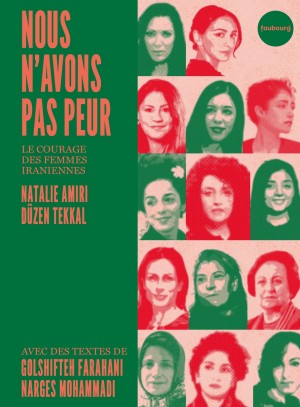 Ces voix s’élèvent parfois depuis l’exil, parfois depuis des cellules de prison. Elles parlent d’une vie sans droits contrôlée par la police des mœurs, d’humiliations, de mise sous tutelle et de détresse économique.
Ces voix s’élèvent parfois depuis l’exil, parfois depuis des cellules de prison. Elles parlent d’une vie sans droits contrôlée par la police des mœurs, d’humiliations, de mise sous tutelle et de détresse économique.
Mais aussi d’une nouvelle génération, d’une révolution que plus rien ne pourra arrêter, de libertés qui se gagnent pas à pas et de l’incroyable résilience du peuple iranien. Leurs textes sont bouleversants, remplis de larmes et porteurs d’espoir. Leur bravoure est une leçon d’humanité.
Avec les témoignages de : Golshifteh Farahani, Ghazal Abdollahi, Parastou Forouhar, Shohreh Bayat, Shila Behjat, Ani, Nargess Eskandari-Grünberg, Fariba Balouch, Rita Jahanforuz, Jasmin Shakeri, Shirin Ebadi, Masih Alinejad, Narges Mohammadi, Nazanin Boniadi, Nasrin Sotoudeh, Leily.
Traduit de l’allemand par Mathilde Ramadier, sauf pour le témoignage de Golshifteh Farahani, recueilli par Sophie Caillat.
Nous n’avons pas peur
Le courage des femmes iraniennes
Natalie Amiri & Düzen Tekkal
Avec le témoignage de Golshifteh Farahani
Traduction : Mathilde Ramadier
Editions du Faubourg
ISBN : 9782493594686
Publié le 1 mars 2024
208 pages
140 x 190 mm
Acheter le livre en librairie au prix de € 18,-
• fleursdumal.nl magazine
More in: #Editors Choice Archiv, - Book News, - Book Stories, - Bookstores, Archive A-B, Archive S-T, Banned Books, Feminism, Persian Art, REPRESSION OF WRITERS, JOURNALISTS & ARTISTS
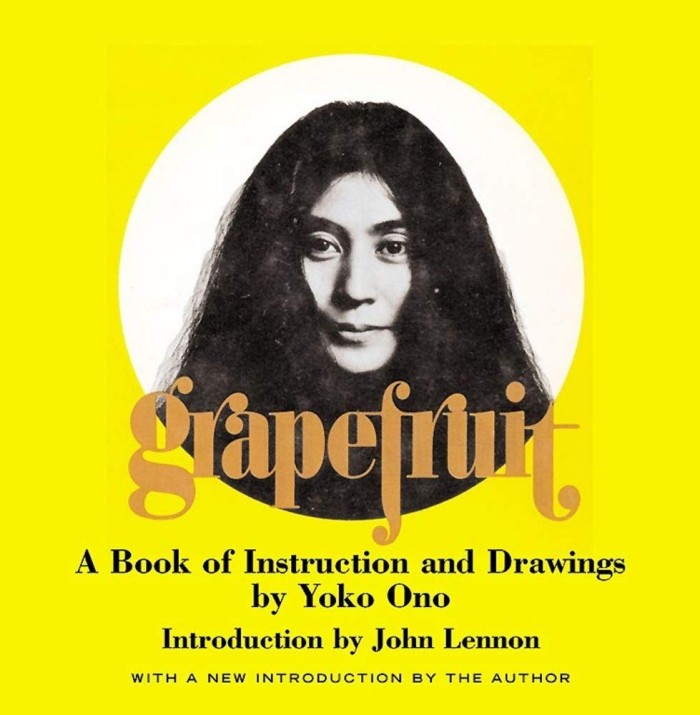
TATE MODERN LONDON
Yoko Ono Music of the Mind
15 February – 1 September 2024
Delve into the powerful, participatory work of artist and activist Yoko Ono
Yoko Ono (1933) is a leading figure in conceptual and performance art, experimental film and music. Developing her practice in America, Japan and the UK, she is renowned for her activism, work for world peace, and environmental campaigns. Ideas are central to her art, often expressed in poetic, humorous and radical ways.
Spanning more than seven decades, the exhibition focuses on key moments in Ono’s career, including her years in London from 1966 to 1971, where she met John Lennon (1940 – 1980).
The show explores some of Ono’s most talked about artworks and performances, from Cut Piece (1964), where people were invited to cut off her clothing, to her banned Film No.4 (Bottoms) (1966-67) which she created as a ‘petition for peace’.
Alongside her early performances, works on paper, objects, and music, audiences will discover a selection of her activist projects such as PEACE is POWER and Wish Tree, where visitors can contribute personal wishes for peace.
Through her instructions and event scores, Ono invites visitors to take part in both simple acts of the imagination and active encounters with her works.
The exhibition is organised by Tate Modern, London in collaboration with Kunstsammlung Nordrhein-Westfalen, Düsseldorf
Y O K O O N O & J O H N L E N N O N
• fleursdumal.nl magazine
More in: #Editors Choice Archiv, - Book Lovers, - Book Stories, Archive K-L, Archive O-P, Archive Q-R, Art Criticism, Exhibition Archive, FDM in London, Pax for peace, Performing arts, Yoko Ono & John Lennon
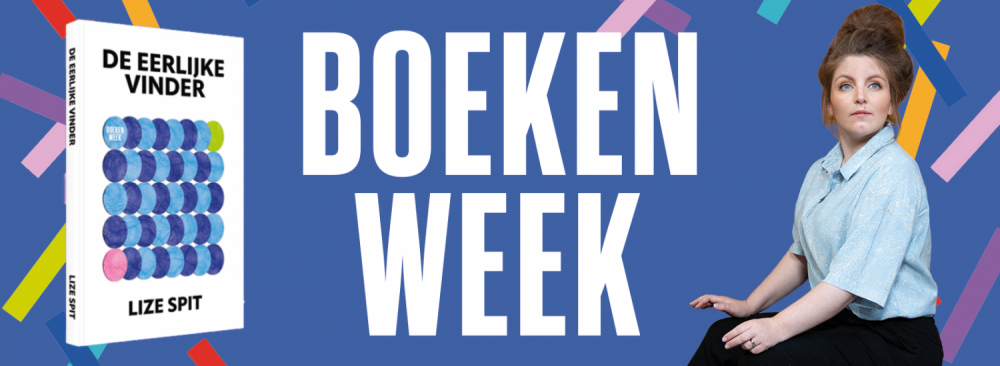
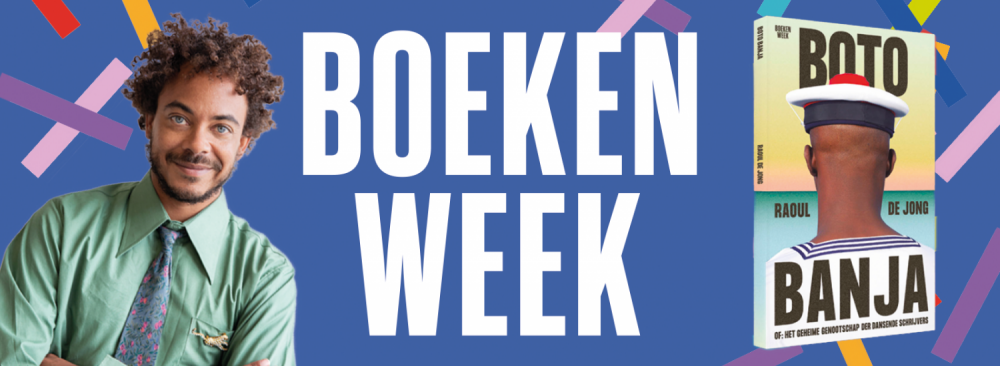
More in: - Audiobooks, - Book Lovers, - Book News, - Book Stories, - Bookstores, AUDIO, CINEMA, RADIO & TV, Boekenweek, The Art of Reading
In the late 1880s, a dashing young Italian aristocrat made an astonishing confession to the novelist Émile Zola.
In a series of revealing letters, he frankly described his sexual experiences with other men—including his seduction as a teenager by one of his father’s friends and his first love affair, with a sergeant during his military service—as well as his “extraordinary” personality.
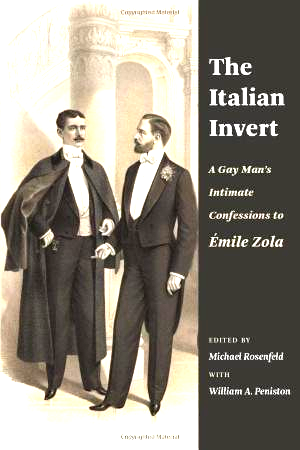 Judging it too controversial, Zola gave it to a young doctor, who in 1896 published a censored version in a medical study on sexual inversion, as homosexuality was then known. When the Italian came across this book, he was shocked to discover how his life story had been distorted. In protest, he wrote a long, daring, and unapologetic letter to the doctor defending his right to love and to live as he wished.
Judging it too controversial, Zola gave it to a young doctor, who in 1896 published a censored version in a medical study on sexual inversion, as homosexuality was then known. When the Italian came across this book, he was shocked to discover how his life story had been distorted. In protest, he wrote a long, daring, and unapologetic letter to the doctor defending his right to love and to live as he wished.
This book is the first complete, unexpurgated version in English of this remarkable queer autobiography.
Its text is based on the recently discovered manuscript of the Italian’s letter to the doctor.
It also features an introduction tracing the textual history of the documents, analytical essays, and additional materials that help place the work in its historical context.
Offering a striking glimpse of gay life in Europe in the late nineteenth century, The Italian Invert brings to light the powerful voice of a young man who forthrightly expressed his desires and eloquently affirmed his right to pleasure.
Whether you persist in reading it as a proto-naturalist novel (despite the opinions of the editors of this volume) or treat it as a sociological document, The Italian Invert is a classic text of nineteenth-century sexology the interest of which is by no means limited to French (or Italian) studies. (Melanie Hawthorne, Texas A&M University)
Michael Rosenfeld holds two doctorates, one in French literature and civilization from the Université Sorbonne Nouvelle–Paris 3 and one in French language and literature from the Catholic University of Louvain in Belgium.
William A. Peniston is the librarian and archivist emeritus at the Newark Museum of Art, as well as a historian of France. His books include Pederasts and Others: Urban Culture and Sexual Identity in Nineteenth-Century Paris (2004).
Nancy Erber is professor emerita of modern languages and literature at the City University of New York. With Peniston, she edited and translated Queer Lives: Men’s Autobiographies from Nineteenth-Century France (2007).
The Italian Invert
A Gay Man’s Intimate Confessions to Émile Zola
Edited by Michael Rosenfeld with William A. Peniston.
Translated by Nancy Erber and William A. Peniston.
Pub. Date: 5 July 2022
272 Pages
Format: Paperback
Publisher: Columbia University Press
Language: English
Paperback: 272 pages
ISBN-10: 0231204892
ISBN-13: 978-0231204897
List Price: £25.00
• fleursdumal.nl magazine
More in: #Biography Archives, - Book Lovers, - Book News, - Book Stories, Archive Y-Z, Émile Zola, LGBT+ (lhbt+)
A tender and compellling memoir of the author’s grandparents, their literary salon, and a way of life that is no more.
The House of Twenty Thousand Books is the story of Chimen Abramsky, an extraordinary polymath and bibliophile who amassed a vast collection of socialist literature and Jewish history. For more than fifty years Chimen and his wife, Miriam, hosted epic gatherings in their house of books that brought together many of the age’s greatest thinkers.
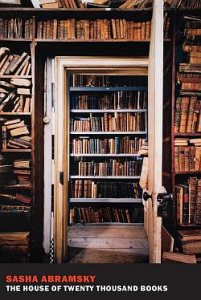 The atheist son of one of the century’s most important rabbis, Chimen was born in 1916 near Minsk, spent his early teenage years in Moscow while his father served time in a Siberian labor camp for religious proselytizing, and then immigrated to London, where he discovered the writings of Karl Marx and became involved in left-wing politics.
The atheist son of one of the century’s most important rabbis, Chimen was born in 1916 near Minsk, spent his early teenage years in Moscow while his father served time in a Siberian labor camp for religious proselytizing, and then immigrated to London, where he discovered the writings of Karl Marx and became involved in left-wing politics.
He briefly attended the newly established Hebrew University in Jerusalem, until World War II interrupted his studies.
Back in England, he married, and for many years he and Miriam ran a respected Jewish bookshop in London’s East End. When the Nazis invaded Russia in June 1941, Chimen joined the Communist Party, becoming a leading figure in the party’s National Jewish Committee. He remained a member until 1958, when, shockingly late in the day, he finally acknowledged the atrocities committed by Stalin. In middle age, Chimen reinvented himself once more, this time as a liberal thinker, humanist, professor, and manuscripts’ expert for Sotheby’s auction house.
Journalist Sasha Abramsky re-creates here a lost world, bringing to life the people, the books, and the ideas that filled his grandparents’ house, from gatherings that included Eric Hobsbawm and Isaiah Berlin to books with Marx’s handwritten notes, William Morris manuscripts and woodcuts, an early sixteenth-century Bomberg Bible, and a first edition of Descartes’s Meditations. The House of Twenty Thousand Books is a wondrous journey through our times, from the vanished worlds of Eastern European Jewry to the cacophonous politics of modernity.
The Book includes 43 photos.
“Sasha Abramsky’s account of his grandfather’s devotion to books and reading is a moving testimonial to the persistance of human curiosity in a world that seems to drift farther and farther from the delight of intellectual pursuits. It is a moving, instructive, astonishing account of one man’s love for the printed word that all readers will appreciate. The House of Twenty Thousand Books deserves twenty hundred thousand readers.”
— Alberto Manguel
Sasha Abramsky was born and raised in the UK, studied politics, philosophy and economics at Balliol College, Oxford, and moved to the US in my early 20s. He has lived and worked in London, New York, and in California. His writings have been published in the Nation magazine, the New Yorker online, the New York Times, Atlantic, Mother Jones, Truthout, Sacramento Magazine, Slate, Salon, and many other publications in the US. In the UK he has written for a number of publications, including the Guardian, the Observer, the Sunday Telegraph, and the New Statesman.
The House of Twenty Thousand Books
by Sasha Abramsky, with a new preface by the author
Publisher: New York Review Books
Reprint edition 2017
Language: English
Paperback
376 pages
ISBN-10: 1681371138
ISBN-13: 978-1681371139
$17.95
• fleursdumal.nl magazine
More in: #Biography Archives, - Book Lovers, - Book Stories, Alberto Manguel, Archive A-B, Libraries in Literature, Literaire sporen, The Art of Reading
No art has been denounced as often as poetry. It’s even bemoaned by poets: “I, too, dislike it,” wrote Marianne Moore.
“Many more people agree they hate poetry,” Ben Lerner writes, “than can agree what poetry is. I, too, dislike it and have largely organized my life around it and do not experience that as a contradiction because poetry and the hatred of poetry are inextricable in ways it is my purpose to explore.”
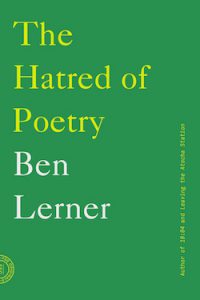 In this inventive and lucid essay, Lerner takes the hatred of poetry as the starting point of his defense of the art. He examines poetry’s greatest haters (beginning with Plato‘s famous claim that an ideal city had no place for poets, who would only corrupt and mislead the young) and both its greatest and worst practitioners, providing inspired close readings of Keats, Dickinson, McGonagall, Whitman, and others.
In this inventive and lucid essay, Lerner takes the hatred of poetry as the starting point of his defense of the art. He examines poetry’s greatest haters (beginning with Plato‘s famous claim that an ideal city had no place for poets, who would only corrupt and mislead the young) and both its greatest and worst practitioners, providing inspired close readings of Keats, Dickinson, McGonagall, Whitman, and others.
Throughout, he attempts to explain the noble failure at the heart of every truly great and truly horrible poem: the impulse to launch the experience of an individual into a timeless communal existence. In The Hatred of Poetry, Lerner has crafted an entertaining, personal, and entirely original examination of a vocation no less essential for being impossible.
Ben Lerner was born in Topeka, Kansas, in 1979. He has received fellowships from the Fulbright, Guggenheim, Howard, and MacArthur Foundations. His first novel, Leaving the Atocha Station, won the 2012 Believer Book Award, and excerpts from 10:04 have been awarded The Paris Review’s Terry Southern Prize. He has published three poetry collections: The Lichtenberg Figures, Angle of Yaw (a finalist for the National Book Award for Poetry),and Mean Free Path. Lerner is a professor of English at Brooklyn College.
The Hatred of Poetry
by Ben Lerner
Publisher: FSG Originals
First Edition (June 7, 2016)
Language : English
Paperback
96 pages
ISBN-10 : 0865478201
ISBN-13 : 978-0865478206
$ 8.99
• fleursdumal.nl magazine
More in: #Editors Choice Archiv, #Modern Poetry Archive, - Book News, - Book Stories, Archive K-L, Archive K-L, LITERARY MAGAZINES
En quelques pages, à la première personne, Annie Ernaux (1940) raconte une relation vécue avec un homme de trente ans de moins qu’elle.

Une expérience qui la fit redevenir, l’espace de plusieurs mois, la « fille scandaleuse » de sa jeunesse.
Un voyage dans le temps qui lui permit de franchir une étape décisive dans son écriture.
Ce texte est une clé pour lire l’œuvre d’Annie Ernaux — son rapport au temps et à l’écriture.
Annie Ernaux
Le jeune homme
Editions Gallimard
ISBN 9782072980090
Paru le 05 mai 2022
Collection Blanche, Gallimard
48 pages,
118 x 185 mm, sur Vélin pur fil
Genre : Romans et récits Époque : XXe-XXIe siècle
Prix : € 8,00
• fleursdumal.nl magazine
More in: - Book Lovers, - Book Stories, Annie Ernaux, Archive E-F, Archive E-F, Histoire de France
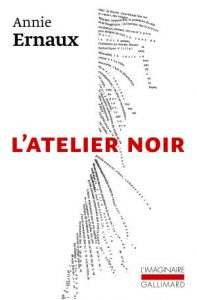 Tous les livres que j’ai écrits ont été précédés d’une phase, souvent très longue, de réflexions et d’interrogations, d’incertitudes et de directions abandonnées.
Tous les livres que j’ai écrits ont été précédés d’une phase, souvent très longue, de réflexions et d’interrogations, d’incertitudes et de directions abandonnées.
À partir de 1982, j’ai pris l’habitude de noter ce travail d’exploration sur des feuilles, avec des dates, et j’ai continué de le faire jusqu’à présent. C’est un journal de peine, de perpétuelle irrésolution entre des projets, entre des désirs. Une sorte d’atelier sans lumière et sans issue, dans lequel je tourne en rond à la recherche des outils, et des seuls, qui conviennent au livre que j’entrevois, au loin, dans la clarté.
A. E.
Parallèlement à ses romans, Annie Ernaux tient un journal d’avant-écriture ; une sorte de livre de fouilles, rédigé année après année, qui offre une incursion rare de « l’autre côté » de l’œuvre.
Plongé au cœur même de l’acte d’écrire, le lecteur devient témoin du long dialogue de l’autrice avec elle-même : la pensée taillée au couteau, des idées en vrac, des infinitifs en mouvement ; des associations de mots, de morceaux de temps, et de confidences.
Pour la réédition de L’atelier noir, Annie Ernaux a souhaité augmenter l’ouvrage de pages inédites de son journal de Mémoire de fille.
Annie Ernaux
L’atelier noir
Édition augmentée
Collection L’Imaginaire (n° 733), Gallimard
Parution: 10-02-2022 – Poche 10 €
180 pages, sous couverture illustrée, 125 x 190 mm
Achevé d’imprimer : 01-01-2022
Genre : Mémoires et autobiographies Catégorie – Littérature
Époque : XXe-XXIe siècle
ISBN : 9782072958441
• fleursdumal.nl magazine
More in: - Book News, - Book Stories, Archive E-F, Archive E-F
The armed conflict in the east of Ukraine in 2017 brought about an emergence of a distinctive trend in contemporary Ukrainian poetry: the poetry of war.
 Directly and indirectly, the poems collected in this volume engage with the events and experiences of war, reflecting on the themes of alienation, loss, dislocation, and disability; as well as justice, heroism, courage, resilience, generosity, and forgiveness.
Directly and indirectly, the poems collected in this volume engage with the events and experiences of war, reflecting on the themes of alienation, loss, dislocation, and disability; as well as justice, heroism, courage, resilience, generosity, and forgiveness.
In addressing these themes, the poems also raise questions about art, politics, citizenship, and moral responsibility. The anthology brings together some of the most compelling poetic voices from different regions of Ukraine. Young and old, female and male, somber and ironic, tragic and playful, filled with extraordinary terror and ordinary human delights, the voices recreate the human sounds of war in its tragic complexity.
Oksana Maksymchuk is an author of two award-winning books of poetry in the Ukrainian language, and a recipient of Richmond Lattimore and Joseph Brodsky-Stephen Spender translation prizes. She works on problems of cognition and motivation in Plato’s moral psychology. Maksymchuk teaches philosophy at the University of Arkansas.
Max Rosochinsky is a poet and translator from Simferopol, Crimea. His poems had been nominated for the PEN International New Voices Award in 2015. With Maksymchuk, he won first place in the 2014 Brodsky-Spender competition. His academic work focuses on twentieth century Russian poetry, especially Osip Mandelshtam and Marina Tsvetaeva.
Published by Academic Studies Press (Boston, MA) and Harvard Ukrainian Research Institute (Cambridge, MA), Words for War: New Poems from Ukraine is available in hardback, paperback, and digital ebook formats.
New Poems from Ukraine by:
Anastasia Afanasieva
Vasyl Holoborodko
Borys Humenyuk
Yuri Izdryk
Aleksandr Kabanov
Kateryna Kalytko
Lyudmyla Khersonska
Boris Khersonsky
Marianna Kiyanovska
Halyna Kruk
Oksana Lutsyshyna
Vasyl Makhno
Marjana Savka
Ostap Slyvynsky
Lyuba Yakimchuk
Serhiy Zhadan

# new poetry
Words for War: New Poems from Ukraine
Edited by Oksana Maksymchuk & Max Rosochinsky
with an introduction by Ilya Kaminsky and an afterword by Polina Barskova
Publisher: Academic Studies Press
Series: Ukrainian Studies
Pages: 242 pp.
16 illus. (color)
Publication Date: December 2017
English
ISBN: 9781618116666 (cloth) 32,99 euro
ISBN: 9781618118615 (paper) 24,99 euro
More information: https://www.wordsforwar.com/
• fleursdumal.nl magazine
More in: #Modern Poetry Archive, #More Poetry Archives, *War Poetry Archive, - Book News, - Book Stories, Archive Y-Z, REPRESSION OF WRITERS, JOURNALISTS & ARTISTS, WAR & PEACE, Yakimchuk, Lyuba
Thank you for reading Fleurs du Mal - magazine for art & literature